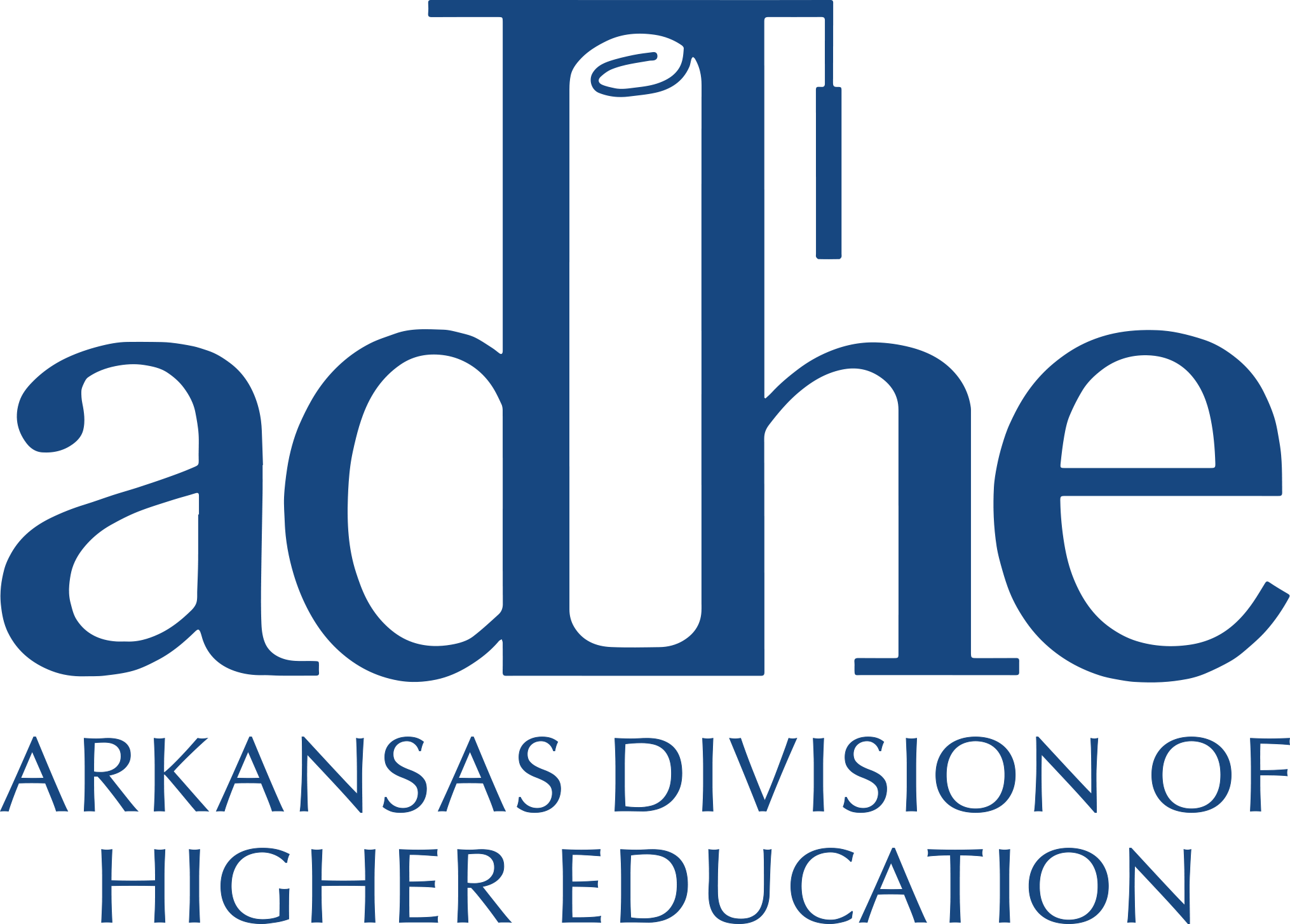Press Release Details
ADHE COORDINATING BOARD HEARS NEW METRICS FOR PRODUCTIVITY FUNDING
Posted Date: 6/8/2017
FOR IMMEDIATE RELEASE
Contact:Alisha Lewis
Associate Director of Communications | Arkansas Department of Higher Education
501-320-3095 | alisha.lewis@adhe.edu | www.adhe.edu
LITTLE ROCK, AR - The Arkansas Higher Education Coordinating Board (AHECB) met on Monday, May 22 for a special board meeting to review the metrics associated with the new productivity method of calculating funding recommendations for state-supported institutions of higher education.
“The largest portion of the meeting was spent reviewing the metrics of the new productivity funding model,” said Deputy Director Tara Smith. “Higher Education representatives developed the metrics as part of a master plan that ultimately spoke to the attainment goals of the state.”
The metrics are centered around four fundamental categories: Effectiveness (80% of model), Affordability (20% of model), Mission Specific Adjustments and Efficiency Adjustments.
“The effectiveness category makes up 80% of the measures,” said Dr. Maria Markham, ADHE Director. “This represents the effectiveness of institutions in keeping students progressing through their academic careers while fulfilling the mission of the institution.”
The components of the Effectiveness category are Credentials, Progression, Transfer Success, and Gateway Course Success. In the future, when the data is available, two additional components will be added-- Non-Credit Workforce Training and Post-Completion Success.
The components of the Affordability category are Time to Degree, or the length of time it takes a student to earn a credential, and Credits at Completion, or measuring the number of credit hours it takes a student to complete a credential.
The remaining components of the metrics will involve adjustments to acknowledge the research mission of universities and diseconomies of scale to recognize the mission of two-year colleges that serve rural areas. There is also an additional +/- 2% adjustment for Efficiency metrics involving institutional core expense ratio and faculty-to-administration salary ratio.
Arkansas Act 148 of 2017 instructed the Coordinating Board to adopt policies necessary to implement productivity-based funding model. The meeting was the first step in that process. The new productivity-based funding methodology will be used to determine funding recommendations for state-supported institutions of higher education starting with the 2018-19 academic year.
“We are at the policy stage of the timeline,” said Markham. “Later in the year, we will align the productivity score with funding recommendations for the institutions.”
In other business, the board heard a report that included an update from what was reported in the previous regularly scheduled board meeting for performance funding. Data was provided by East Arkansas Community College which indicated the institution achieved a 7.32 which exceeded the required minimum score of 6 points on the current Performance Funding Model. The Board also approved an economic feasibility from Southern Arkansas University of plans to obtain two (2) loans not to exceed $1,060,000 with a term of ten (10) years at an annual interest rate not to exceed 3.6 percent. Proceeds will be used to construct a facility that will serve as the president’s residence and official event’s facility and to purchase an apartment complex previously leased by the university.
The next regularly scheduled Coordinating Board meeting will be July 28 and hosted by the Cossatot Community College of the University of Arkansas.

